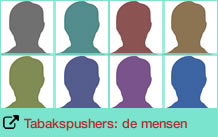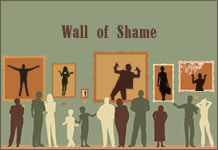Dutch citizens’ initiative leads to enquiry into generational tobacco ban
The initiative could see a ban on the sale of nicotine products to people born after 2012
18 December 2024
The Dutch citizens’ initiative Nicotinee (No to nicotine) has turned out to be a resounding success. Parliament has asked the government to investigate Nicotinee’s proposal for a ban on the sale of nicotine-containing products to people born from 2012 onwards. The Lower House has additionally asked the government to promote more cooperation among enforcement authorities in the implementation of the Tobacco Act.
This emerged during yesterday’s votes on motions tabled during the debate on the citizens’ initiative on 12 December last. A total of nine motions were passed calling, among other things, for a tougher crackdown on the tobacco industry, better targeting smoking cessation programmes to young people, and for healthcare providers to collect data on vape-related health damage.
‘This is fantastic. With this, parliament does justice to the support of 70,000 signatories and the entire medical community for Nicotinee,’ responded Wanda de Kanter, president of the Youth Smoking Prevention Foundation and one of the initiators of the citizens’ initiative. ‘State Secretary Vincent Karremans of the ministry of Health stated during the debate that a generational sales ban might not be legally possible. Yet the House now appears, like us, to think otherwise.’
Age limit to raise yearly from 2030 onwards
The citizens’ initiative Nicotinee is an initiative of ConsumentenClaim, Youth Smoking Prevention Foundation, Gezondheidskloof.nl, pulmonologists’ association NVALT and internists’ association NIV. Nicotinee was launched in November 2022, and earlier this year achieved the required 40,000 signatures to get the initiative on the agenda of the Lower House of Parliament. The initiative advocates that from 2030 the age limit for the sale of (e-)cigarettes and other nicotine-containing products be raised by one year each year. This will create a nicotine-free generation in the future. At the same time, it called for the enforcement of existing laws to be stepped up immediately to better protect the next generation from nicotine addiction.
State Secretary Karremans already announced to come up with an intensified anti-vape policy early next year, for which a 5 million euro budget is available.
‘Youth needs our protection’
Leading up to the debate on 12 December, Nicotinee received a lot of media attention in the Netherlands. The debate in the Lower House on 12 December began with an impassioned speech by De Kanter in which she underlined the need for the nicotine-free generation. In doing so, she drew on her own experiences as a lung specialist. ‘All my patients who smoked told me, often with shame, that they had started as children or teenagers,’ she said. It is with despair that she sees that, due to the rise of the e-cigarette and vape for several years, the number of children smoking is now on the rise again. ‘We must protect our youth from this trend. This is our moral duty and even a fundamental right of our children.’
The initiators of Nicotinee will continue to work towards the goals of the citizens’ initiative in the time to come. Dutch citizens still can show their support by signing the initiative at Nicotinee.nl.









 Stichting Rookpreventie Jeugd is geregistreerd als Algemeen Nut Beogende Instelling (RSIN: 820635315 | KvK: 34333760).
Stichting Rookpreventie Jeugd is geregistreerd als Algemeen Nut Beogende Instelling (RSIN: 820635315 | KvK: 34333760).